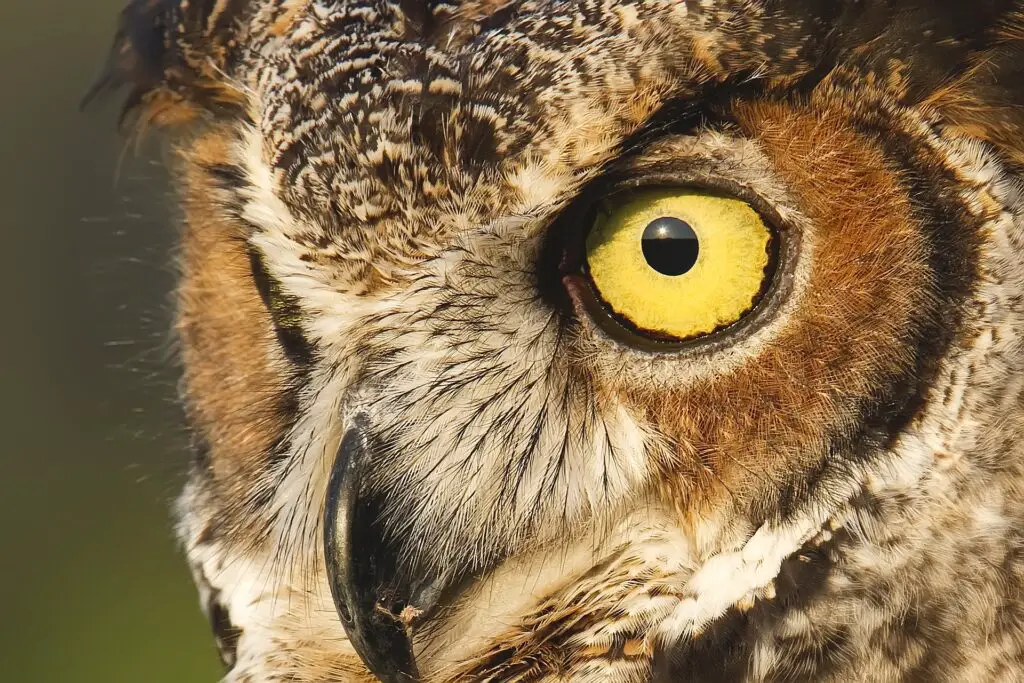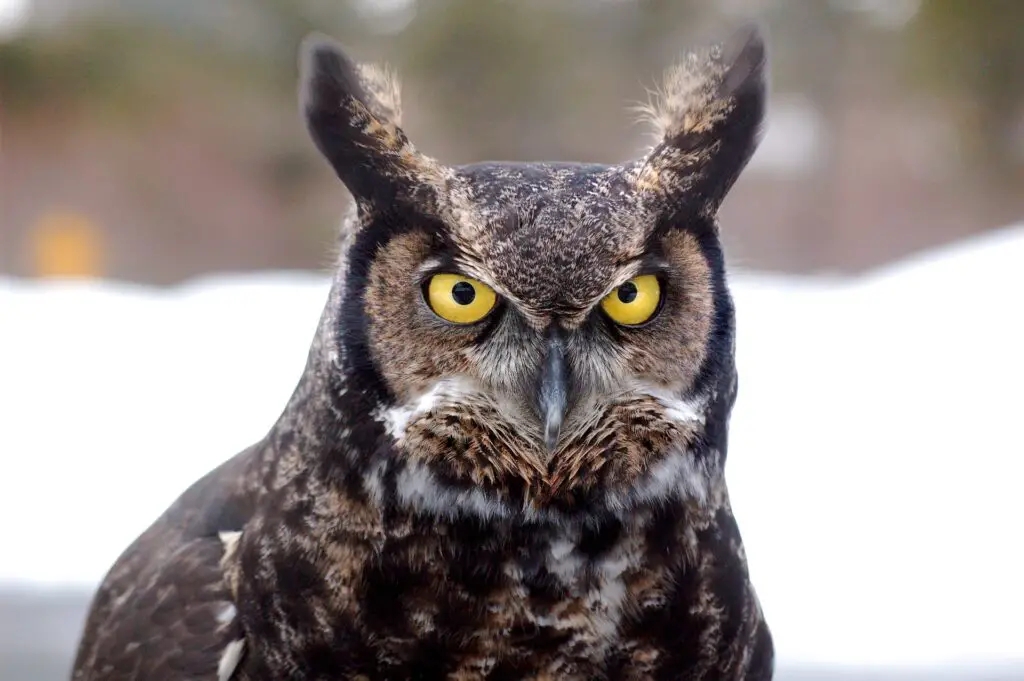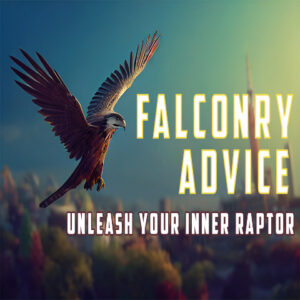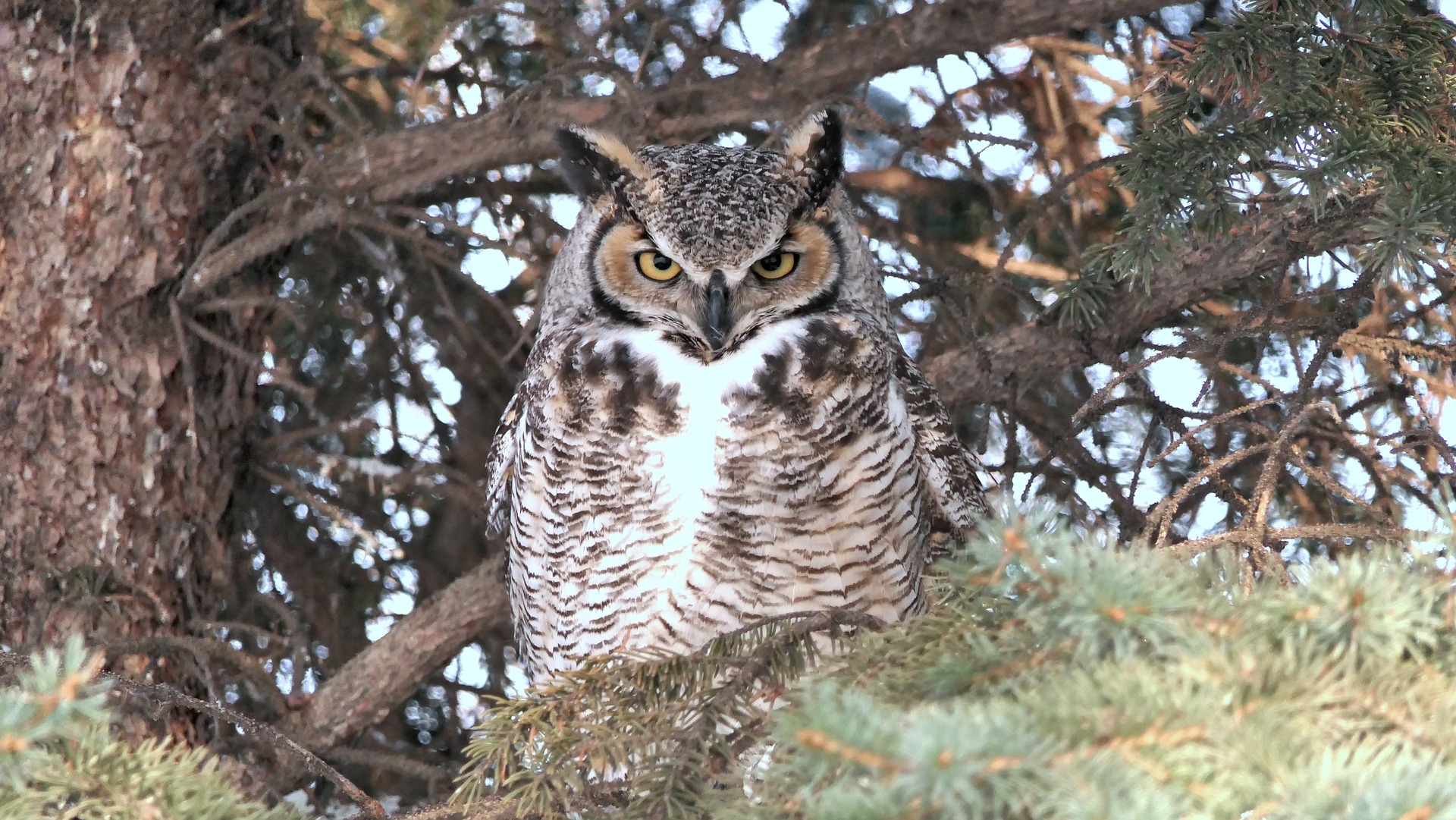Ahh, the great horned owl; not many have had the pleasure of handling one. They are a fascinating type of raptor that many do not get to witness due to their rarity. Despite how uncommon they are, many master falconers like myself get an opportunity to work with them, and for me, they are a challenge beyond the norm that I am used to.
Great horned owls are used in falconry; although they aren’t so common, they are not an easy bird to train, and they can take a significant amount of time, effort and dedication to train. You need ample experience and skill before you attempt working with a great horned owl, or you will find the results catastrophic and morale-crushing.
This type of bird of prey has a higher intelligence level than most other raptors, and they have been trained to work alongside falconers for decades. My first time with this species had me caught with my pants down, but I did learn a lot, and I will share that with you, along with the challenges and rewards of keeping them.

The Pros Of Keeping A Great Horned Owl
As a master falconer, I can attest to the wonderful benefits of keeping a Great Horned Owl. These majestic creatures are not only beautiful but also highly intelligent animals that make exceptional hunting partners. Owls have been used in falconry for centuries and are known for their impressive ability to hunt at night. Over and above that, they have loads more benefits which I have listed a few of.
- Highly intelligent
- Good problem-solving skills
- They are great to show off
- They can take down large prey
- A lifetime companion as their lifespan is long
Owning a Great Horned Owl offers many advantages within the world of falconry. Not only do these birds make excellent hunting companions, but they also form strong bonds with their handlers making them more than just pets or tools – they become trusted friends who serve us well in our passion for this ancient sport.
The Cons Of Keeping A Great Horned Owl
Having a great horned owl as your falconry bird can be an exciting and fulfilling experience, but it is important to consider the potential downsides. While they may seem like majestic creatures, there are risks involved in keeping them that must be taken into account, and they are:
- Risks associated with handling large predatory birds
- The significant amount of care required
- Costly dietary requirements
- Training difficulties
- Excessive time, effort and patience
- Legal restrictions
Overall while having a great horned owl as your falconry companion can be rewarding but not without its challenges, so before acquiring one, it’s essential to weigh up all aspects before making this decision.
Hunting Techniques Great Horned Owl In Falconry
Hunting techniques for this Owl will vary depending on training. They sometimes use the perch and dive approach, or they attack prey on command when a falconer releases them. They are not commonly used with ferrets or dogs, probably due to their larger size, it will attack either the dog or the ferret.
The methods they use while hunting are
- Stealth: Whereby they sneak up on prey
- Ambush: They perch and wait for an opportunistic moment when prey comes within their target range
- Pursuit: Direct chase and kill approach
- Diving: They dive at prey and use their sharp talons to sever the spine of their prey
- Hunting from the air: they often circle areas until the prey is seen, and then they use either of the four mentioned above.
Training a Great Horned Owl requires dedication and commitment on the part of both handler and bird alike- but it can also be incredibly rewarding! With the right preparation and care, this powerful hunter could prove an invaluable asset to anyone looking to improve their skills at falconry.

Important Factors To Consider Before Getting A Great Horned Owl
Before getting a Great Horned Owl, there are several important factors that you should consider. One of the most crucial things to keep in mind is training methods. Owls are not as easily trainable as other birds used in falconry, such as hawks or falcons. Therefore, it’s essential to have patience and use positive reinforcement techniques when working with them.
Another factor to take into account is housing requirements. Great Horned Owls need ample space for flying and perching; therefore, aviaries must be large enough to accommodate their size comfortably. The enclosure should also have adequate protection from predators like raccoons, coyotes, or even domestic pets. Additionally, they require access to fresh water and appropriate lighting conditions to maintain good health.
Diet considerations are another critical aspect of owning a Great Horned Owl. These birds have specific dietary requirements that include rodents, rabbits, and occasionally small birds or reptiles. It’s vital to ensure that their diet is balanced with the proper nutrients and vitamins necessary for their overall well-being.
Legal regulations vary across different states regarding the ownership of these owls due to their protected status by law. It’s imperative to check local laws before acquiring one as a pet or for falconry purposes.
Finally, health concerns cannot be ignored when keeping any bird species in captivity. Regular visits to an avian veterinarian can help detect any underlying medical issues early on before they become severe problems affecting your owl’s life quality.
While there are certainly some challenges to keeping any bird of prey in captivity, the rewards of working with such an intelligent and powerful creature are immeasurable. As the saying goes, “no pain, no gain,” but with perseverance and dedication, you can establish a deep bond with your lanner falcon that will last a lifetime. So why wait? Take the plunge into the world of falconry today!

